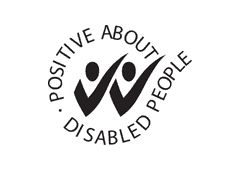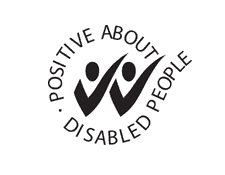
 In spite of research suggesting that disabled graduates fare equally in the workplace with their non-disabled peers, the reality is that many disabled ex-students are still finding it difficult to secure work.
In spite of research suggesting that disabled graduates fare equally in the workplace with their non-disabled peers, the reality is that many disabled ex-students are still finding it difficult to secure work.
The most recent ‘What Happens Next?’ report from AGCAS concluded that graduates who use wheelchairs, have mental health complications or other mobility issues showcase the greatest levels of unemployment amongst those who graduated that same year.
In fact, approximately half of the UK’s disabled, working age population is currently in work. In contrast, more than three quarters of those without disabilities are currently employed. These statistics showcase a stark unfairness and a trend that needs to change.
By law, employers are not to discriminate against those with any disability at any point in the recruitment process (or during employment). The problem is that proving discrimination is difficult, and few who feel they have been discriminated against wish to burden themselves with the stress of legal action.
It’s not uncommon for employers to hold prejudices against applications from disabled jobseekers. They might be under the false impression that disabled workers are less able to do the job, or will take more sick days than non-disabled staff members. They might simply be unwilling to adapt their business premises in the necessary way to accommodate the needs of a disabled employee.
What Can You Do?
If yourself or someone you know is struggling to find work and believes it may be due to a disability:
Don’t mention your disability upon application – not that it should make any difference, but there’s no need to risk putting yourself at a disadvantage before the employer has even considered you.
Seek additional assistance – you don’t have to find seek work alone. You may benefit from the services of a supported living carer who can assist you in finding and keeping work. The Jobcentre is also able to link disabled job hunters with a ‘Disability Employment Adviser’ who will help with creating a ‘job finding’ plan of action.
Look for employers displaying ‘The Disability Symbol’ – this means they have been recognised for being positive about offering jobs to adults with learning disabilities and other impairments. The symbol also demonstrates the employer is active in offering support and assistance to employees with disabilities.
Enhance your skills – needless to say, this applies to anyone, disabled or otherwise, who is unsuccessful in their search for work.
Enrol on a college course, teach yourself at home, or seek volunteer work or internship placements.
Seek legal help – if you have reason to believe you have been discriminated against – e.g. have not been considered for or have been rejected for a job because of your disability.
If you wish to take action against an employer you believe has treated you unfairly, you need to register a complaint to an Employment Tribunal within three months of the date the incident occurred.
Leave a Reply